Vegan
On 2022 Jan 1st, I decided to become a vegan. Before that, I was a vegetarian throughout my life except for 4 years (2016-2020) when I ate meat.
This page contains reasons why I made this decision and also some resources if you are open minded and would like to know more about veganism. You can find many quotes related to veganism here. Sorry if this page offends anyone. As Einstein said, silence = complicity.
“I have expressed an opinion on public issues whenever they appeared to me so bad and unfortunate that silence would have made me feel guilty of complicity.”
“I have always eaten animal flesh with a somewhat guilty conscience.”[1953 letter to Max Kariel]
“So I am living without fats, without meat, without fish, but am feeling quite well this way. It always seems to me that man was not born to be a carnivore.”[1954]
Contents
Reasons
Moral
Meat and Dairy products are not necessary for humans to live a healthy life, and the practise of consuming these is easily the biggest cause of suffering in our current times. Each year we are violating the rights of TRILLIONS of our fellow sentient beings.
The number of individual wild fish killed each year is estimated as 0.97-2.74 trillions (based on FAO tonnage statistics combined with estimated mean weights of fish species) [Source]. The FAO numbers do not include illegal, unreported and unregulated fishing, nor discarded fish. If these are included and over-reporting by China subtracted, the totals increase by about 16.6% to 33.3% [Source]. A similar estimate for the number of farmed fish slaughtered each year is 0.037 to 0.120 trillion [Source]. Also check wikipedia’s Fish slaughter.
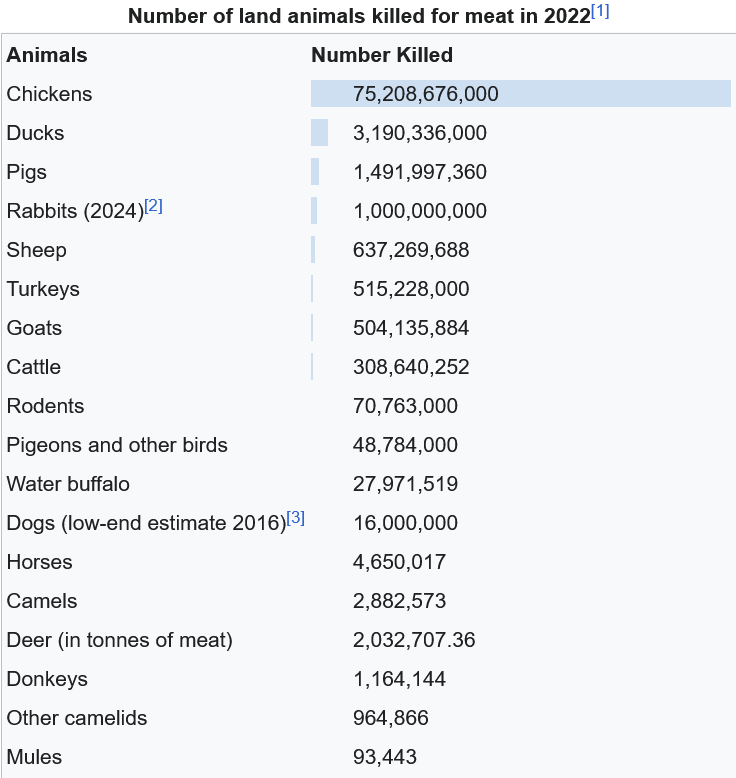
- The average number of wild-caught shrimps slaughtered for food each year (25 trillion) dwarfs the combined total number of all other vertebrate and invertebrate animals slaughtered by humans for consumption worldwide. Sources: 1, 2
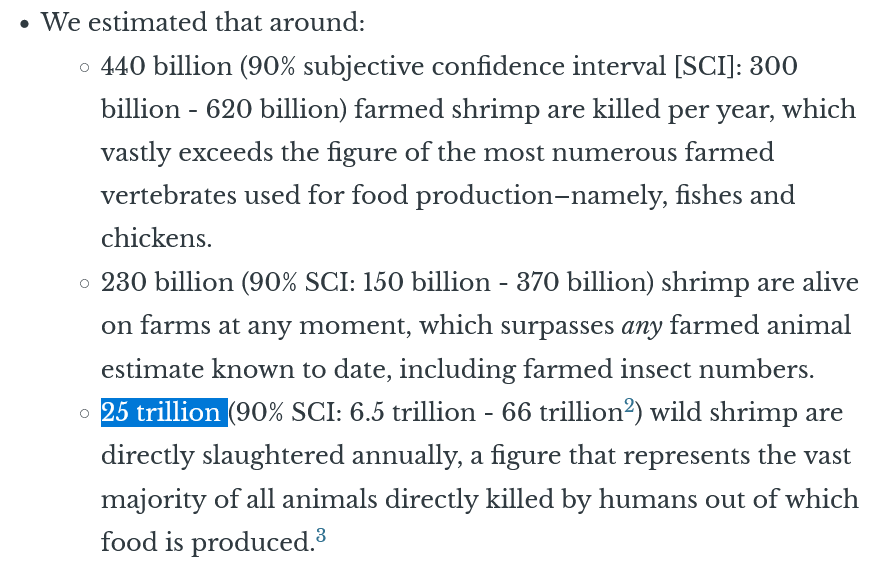
And the sad thing is that these numbers are rapidly increasing. The below image shows the increase in land animals. We don’t have data on how fast the numbers are increasing for fishes and crustaceans.
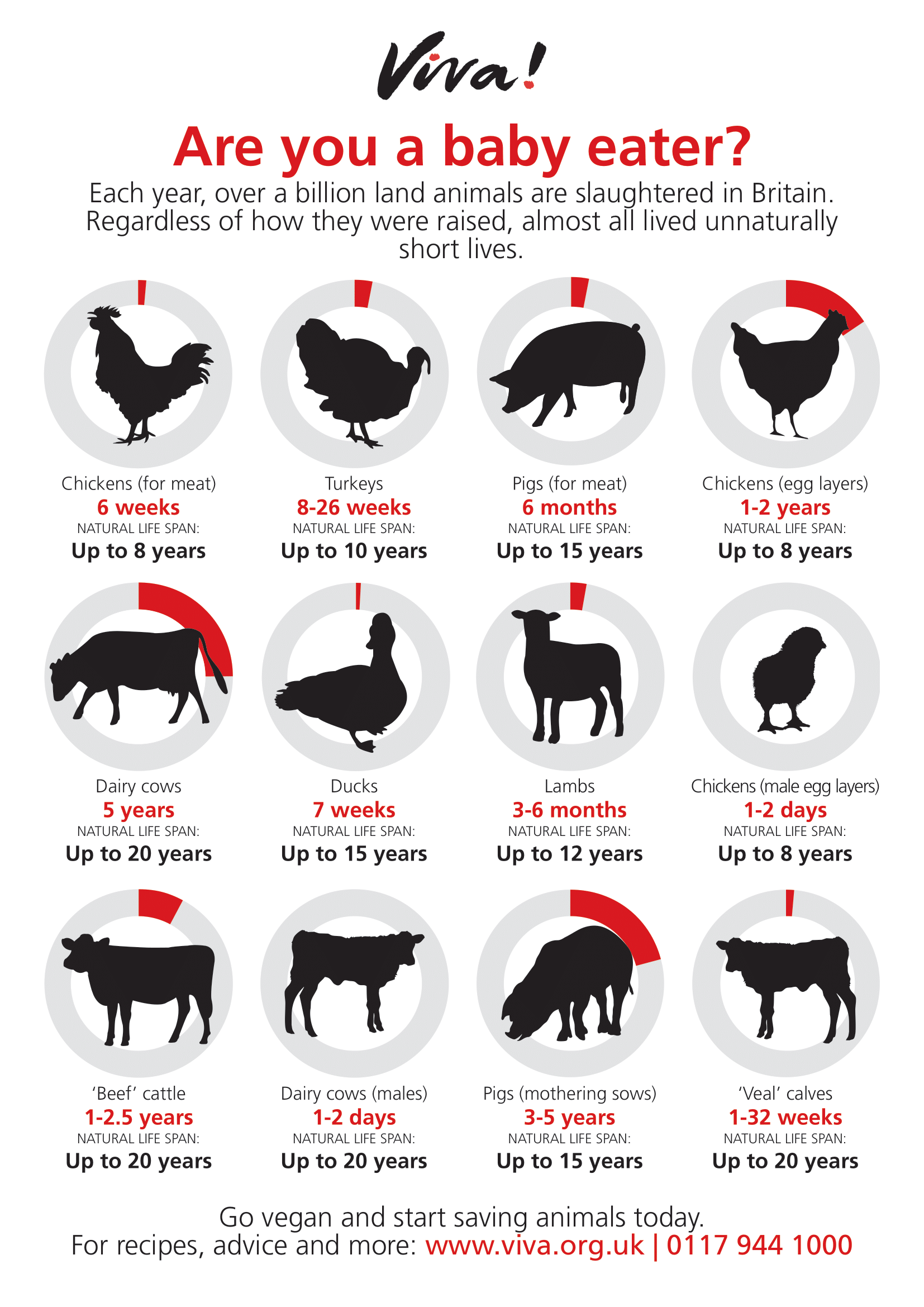
See the below important pamphlet.
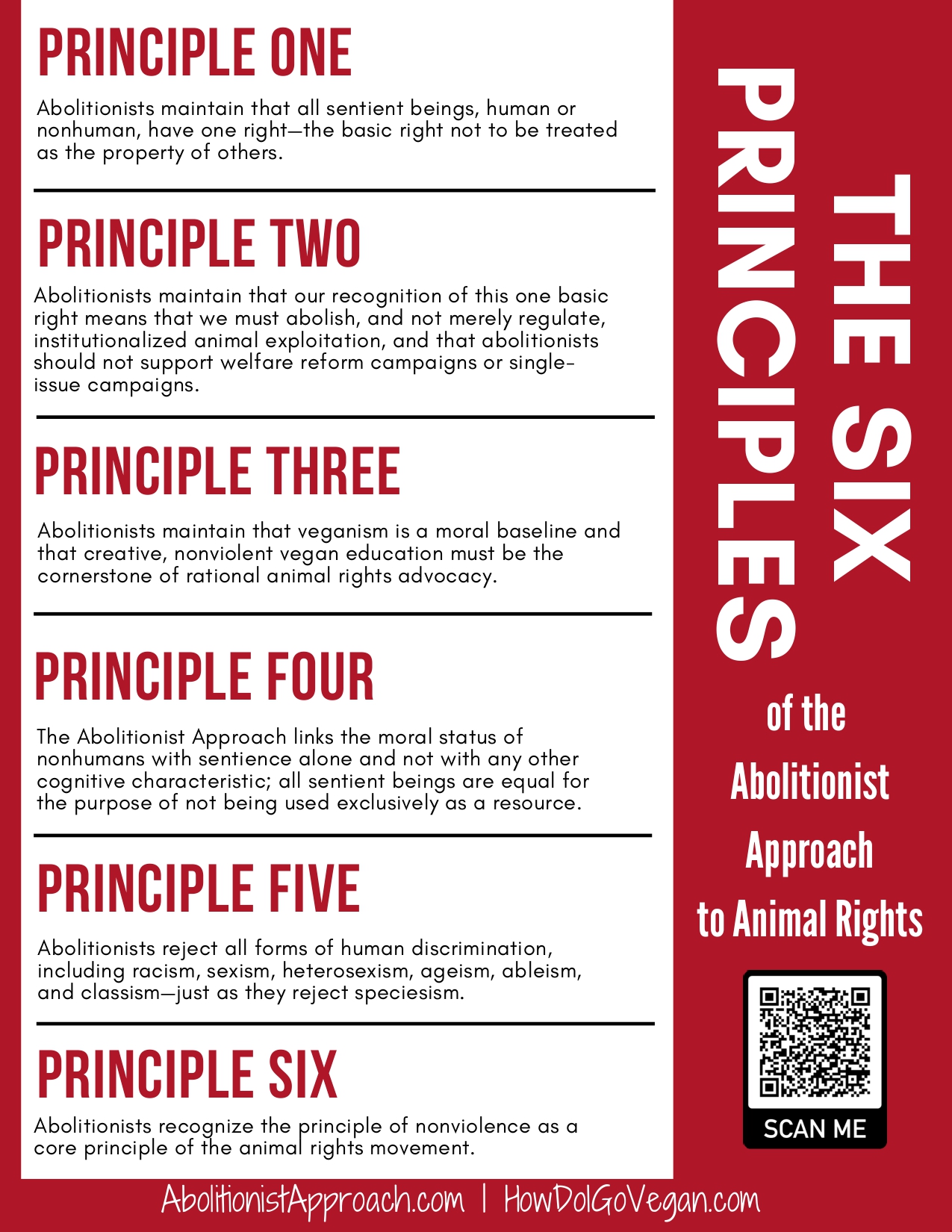
The moral argument is the most important and compelling argument for veganism. Maybe after some centuries we will be advanced enough to kill animals and eat their corpses without causing pollution, cancer, heart diseases etc. But even then it is not morally OK to not be a vegan because of the ethical issues since it is totally unnecessary.

“Here (in my domain) no living beings are to be slaughtered or offered in sacrifice.”
― Aśoka (304 BCE-232 BCE, ruled most of the Indian subcontinent and popularized Buddhism)
“I admit it as an axiom, that every animal has more right to the use of its own body than others have to use it.”
“Much as animals suffer in a natural state, much more do they seem to suffer when under the dominion of the generality of men. What suffering in the former can be supposed to equal the constant torture of a hackney-coach horse?.”
― Lewis Gompertz(1784 - 1861; One of the earliest vegans. He dedicated most of his life to invent devices to reduce animal suffering. In imaginary arguments he called himself “Z” and his irrational opponent as “Y”.)
“Do not unjustly eat fish the water has given up,
And do not desire as food the flesh of slaughtered animals,
Or the white milk of mothers who intended its pure draught
for their young, not noble ladies.
And do not grieve the unsuspecting birds by taking eggs;
for injustice is the worst of crimes.
And spare the honey which the bees get industriously
from the flowers of fragrant plants;
For they did not store it that it might belong to others,
Nor did they gather it for bounty and gifts.
I washed my hands of all this; and wish that I
Perceived my way before my hair went gray!”
“To let go from my hand a flea that I have caught is a kinder act than to bestow a dirhem on a man in need. There is no difference between the black earless creature which I release and the Black Prince of Kinda who bound the tiara (on his head). Both of them take precaution (against death); and life is dear to it (the flea), and it passionately desires the means of living.”
― Al-Ma’arri(973-1057, 1st recorded vegan in history, Arab philosopher, poet, and writer and is regarded as one of the greatest classical Arabic poets. Unlike most people who use tiny inconveniences as excuses, he was blind since childhood and still didn’t think that was enough excuse to support the moral abomination that is Animal Agriculture. He was also a fearless anti-theist.)
“Today more than ninety per cent of all large animals are domesticated. Consider the chicken, for example. Ten thousand years ago it was a rare bird confined to small niches of South Asia. Today billions of chickens live on almost every continent and island, bar Antarctica. The domesticated chicken is probably the most widespread bird in the annals of planet Earth. If you measure success in terms of numbers, chickens, cows and pigs are the most successful animals ever. Alas, domesticated species paid for their unparalleled collective success with unprecedented individual suffering.”
“Yet from the viewpoint of the herd, rather than that of the shepherd, it’s hard to avoid the impression that for the vast majority of domesticated animals, the Agricultural Revolution was a terrible catastrophe. Their evolutionary ‘success’ is meaningless. A rare wild rhinoceros on the brink of extinction is probably more satisfied than a calf who spends its short life inside a tiny box, fattened to produce juicy steaks. The contented rhinoceros is no less content for being among the last of its kind. The numerical success of the calf’s species is little consolation for the suffering the individual endures.”
Dilemmas
Vivisection: It is easy to understand that unnecessarily killing and eating animal dead bodies (“meat”) is cruel. It is not easy to understand whether vivisection is evil.
Read the following articles
- vivisection-part-one-the-necessity-of-vivisection
- vivisection-part-two-the-moral-justification-of-vivisection
- on-vivisection-and-violence
- animals-used-for-experimentation
- navs
Humanity should invest more on alternative ways of medical research instead of vivisection and in the long term should completely move away from this method of research. But until those areas of research are developed I think it is justifiable to use animals for testing as long as large1 number of humans will benefit from it AND it can’t be done in other peaceful ways. But there is a claim in the 3rd reference that “the results of vivisection are “no more informative than tossing a coin,”” if that is true then all types of vivisection are unjustifiable. Also vivisection for curiosity, i.e just to understand how the body of the animal works is not justifiable under any circumstances if it doesn’t help a large number of humans and such research should be banned. In plant agriculture also a lot of insects die due to pesticides, we say it is necessary and we don’t search for alternate ways where we don’t kill insects, so can we justify vivisection similarly by saying it is necessary? I don’t know. It is not clear as of now whether insects are sentient or not. This is not an easy question to answer. Also many mice (they are also the most commonly used animals for medical research) are killed in plant agriculture, which are sentient.
But I should add that there is a difference between suffering in vivisection and suffering during plant agriculture. In the former the suffering is intended where as in the later it is an unintended incidental thing. Directly inflicting suffering is definitely more evil than unintended incidental things (at least in deontolgical theories, even if it is not in utilitarian theories). So, vivisection is more evil. In the incidental insect deaths in plant agriculture, they are not claiming to “own” the insects, in the direct deaths in animal agriculture or vivisection they are claiming they “own” animals like chickens and cows. The commodity status is the main problem.
- A review of insect cognition and sentience in relation to their use as food and feed
- The-importance-of-insect-suffering
Honey and Silk: Evidence is increasing that honey bees are sentient although it looks like the matter isn’t completely settled. For silk worms not much research is done. But it is always better to assume insects are sentient if we don’t know. These are also quite different from the plant agriculture as these industries inflict intended suffering compared to the insects that die in plant agriculture which are incidental.
www.collectivefashionjustice.org
Wildlife suffering: From rights point of view we are not responsible for the suffering caused by non-herbivores. But from utilitarian pov we need to do something like Herbivorize Predators (they are already doing research in this direction). Now lets say we need to do cruel experiments on non-herbivores to force them to evolve into herbivores. Is it justifiable to take the rights away from non-herbivores for few generations until their future generations will be herbivores? I don’t know. I generally follow rights only until a threashold after which I believe in negative utilitairansim1. If you are like Superman/Goku and see someone getting murdered, you are obliged to help them because a bullet can’t do anything to you. Similarly, you are obliged to help wild animals even though you are not responsible for their suffering.
Plant sentience: A lot of people, when debating with vegans, bring up plants and say vegans are murdering plants. This is stupid whataboutism. If you eat animal agriculture products, you need many more plants than you need when you directly eat plants. So, nonvegans are killing way more plants, and even if we do care about plant lives, veganism is still far, far better than carnism. But based on science, we do know that plants are NOT sentient. In general, animals that have central nervous systems are sentient. Most animals, except sponges, corals, etc, are sentient and can suffer. There are some animals (like insects) that we still don’t know, and it might take some time before reaching a consensus. But we certainly know that plants are NOT sentient. But imagine a different universe where plants are sentient, so what should we do there? Even in that case, we should still eat only plants as it will reduce the number of plant deaths, but we should slowly develop technology so that our minds are uploaded into robot bodies that work with solar energy or nuclear energy, etc. If we want something highly efficient and compact, we can even build small particle accelerators in our robot stomach where once every million years, we need to keep some matter and some antimatter, and that slow annihilation will be enough food for a million years.
Environmental
- Animal agriculture is responsible for 18% of all greenhouse gas emissions, which is more than ALL transportation emissions combined [Source]. See this paper PMC7929601 for a much more conservative estimate, putting it equal with ALL transportation emissions combined. Unfortunately, environmental “activists” do not care about the environment; they only care about performative virtue signaling. There are many reasons to abolish animal agriculture listed in this page, some like animal rights are far more important than climate, but even if environmental “activists” don’t care about any other issue and care only about the environment, their number one goal should still be abolishing animal agriculture. Instead, they exclusively focus on the fossil fuel industry, which is not even TOTAL transportation combined. In fact, many environmental “activism” conferences do not provide vegan products, so they kind of make carnism mandatory at these conferences. Even if they say a product is “vegan” at these conferences, it can’t be trusted as they routinely willfully mislabel (see this at the 2024 United Nations Climate Change Conference) products just so they don’t look like massive hypocrites. When an environmental “activist” says they are vegan they usually mean reducetarian. Environmental “activists” are a quasi-religious group that worship Earth. Climate change is not bad because Earth is “sacred”; Earth is not even a sentient being and should not be given moral consideration. It is only bad because it hurts animals (includes humans). Environmentalists seem to have a religious dogma that Earth=God and Fossil Fuel Industry=Devil. Even if you show them that Fossil Fuel Industry is not the biggest contributor to climate change, they will still follow their dogma. See this tweet comparing Environmentalism with the terrorist religion “Terraism” from the “Legend of the Galactic Heroes” anime. Even if the environmentalists don’t do the performative activism, fossil fuel usage will anyway decrease since fossil fuel is a finite commodity & can’t be bred. But Animal agriculture is different. They can keep breeding more animals to commodify/enslave. So, this is far more serious, even in terms of climate.
- 83% of the land used for agriculture is used for Animal Agriculture, but Animal Agriculture only provides humans with 18% of the total calories that humans consume. The fact that most humans do not know how inefficient Animal Agriculture is compared to Plant Agriculture speaks for the collective off-the-charts stupidity of our species. [Source]
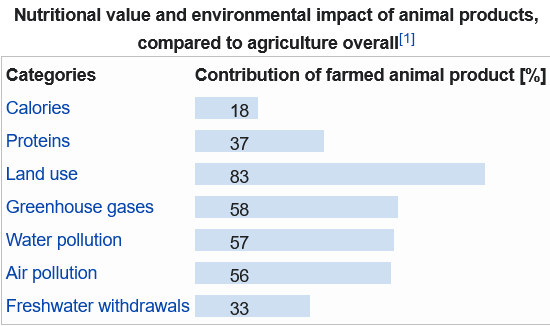
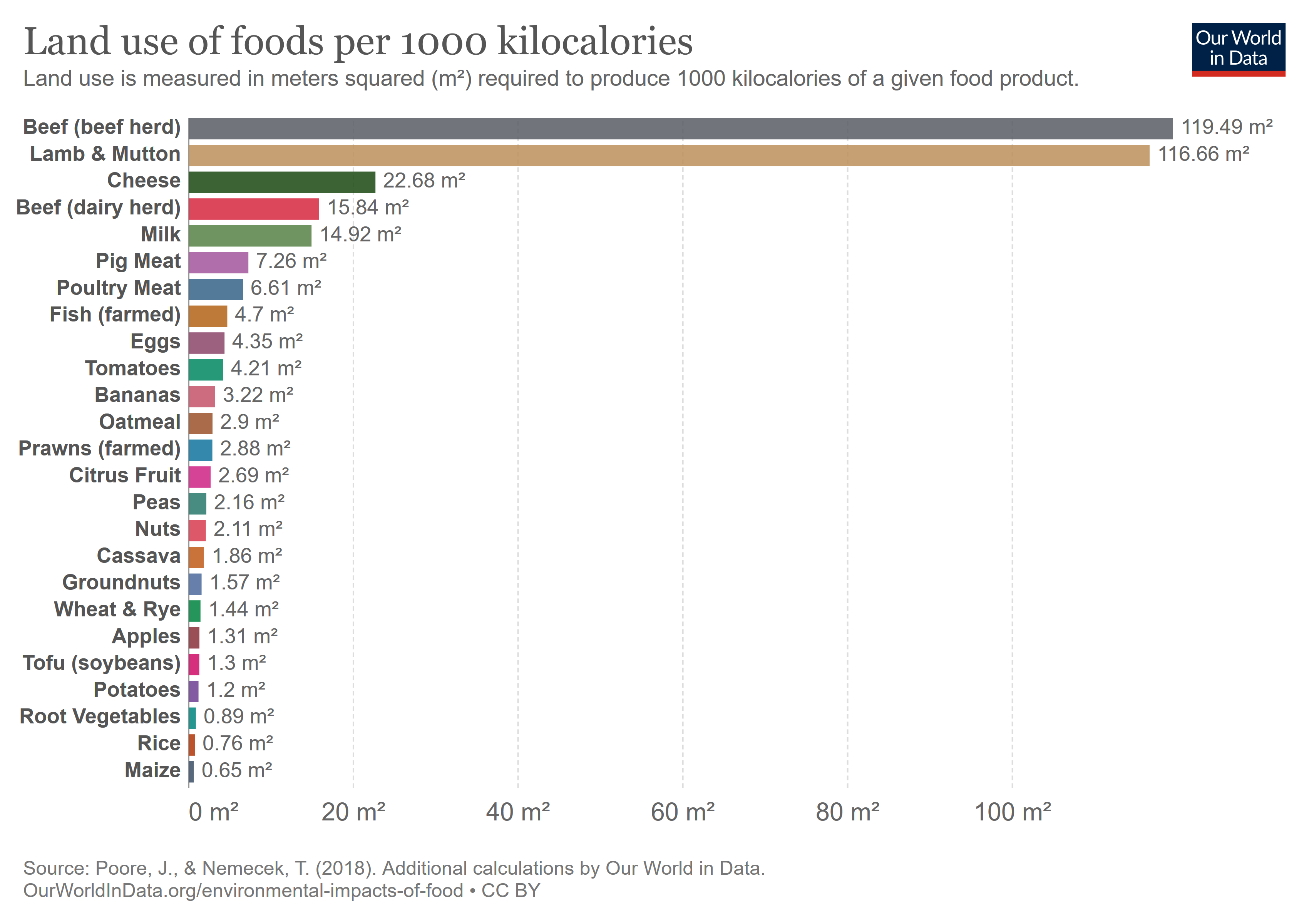
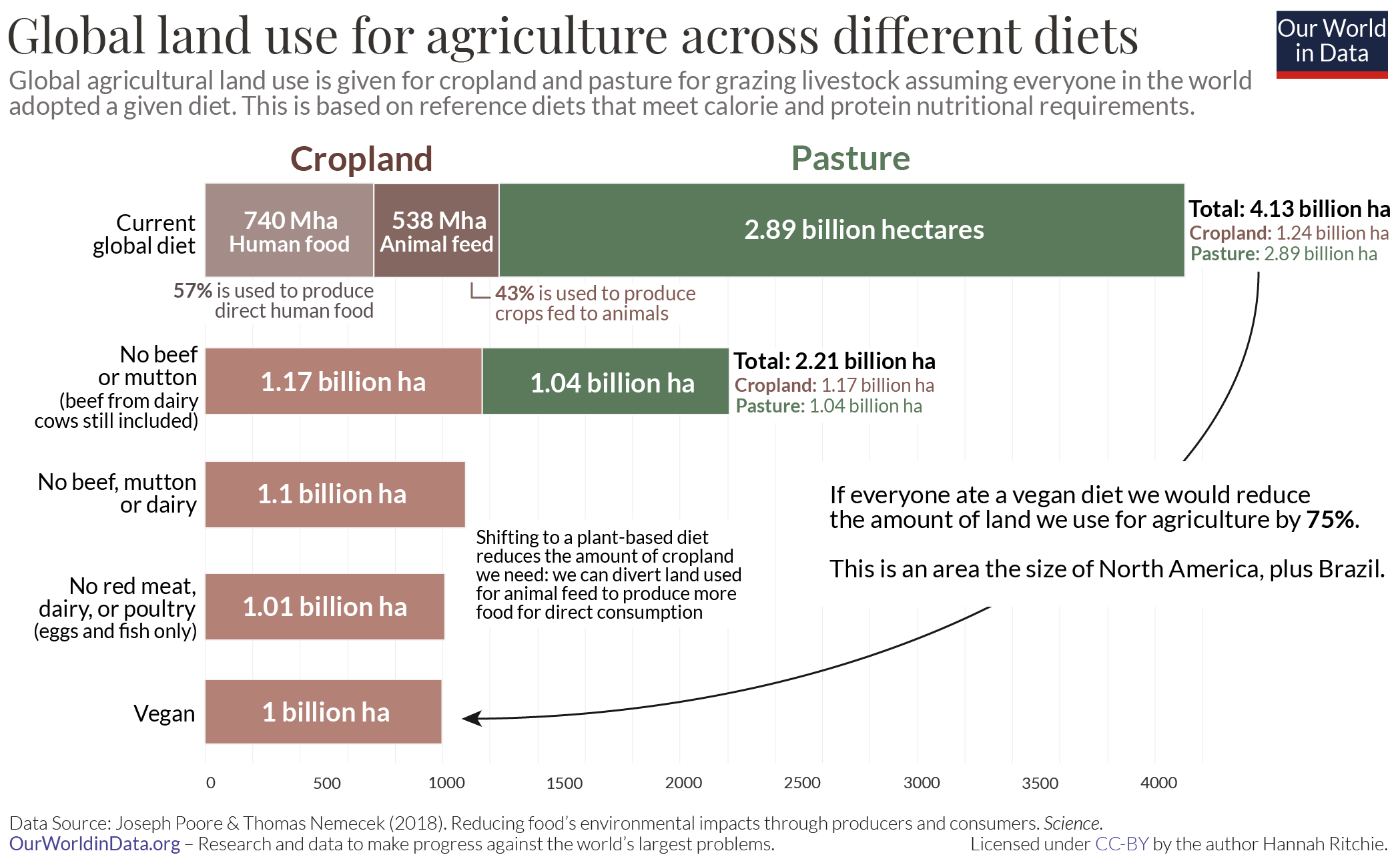
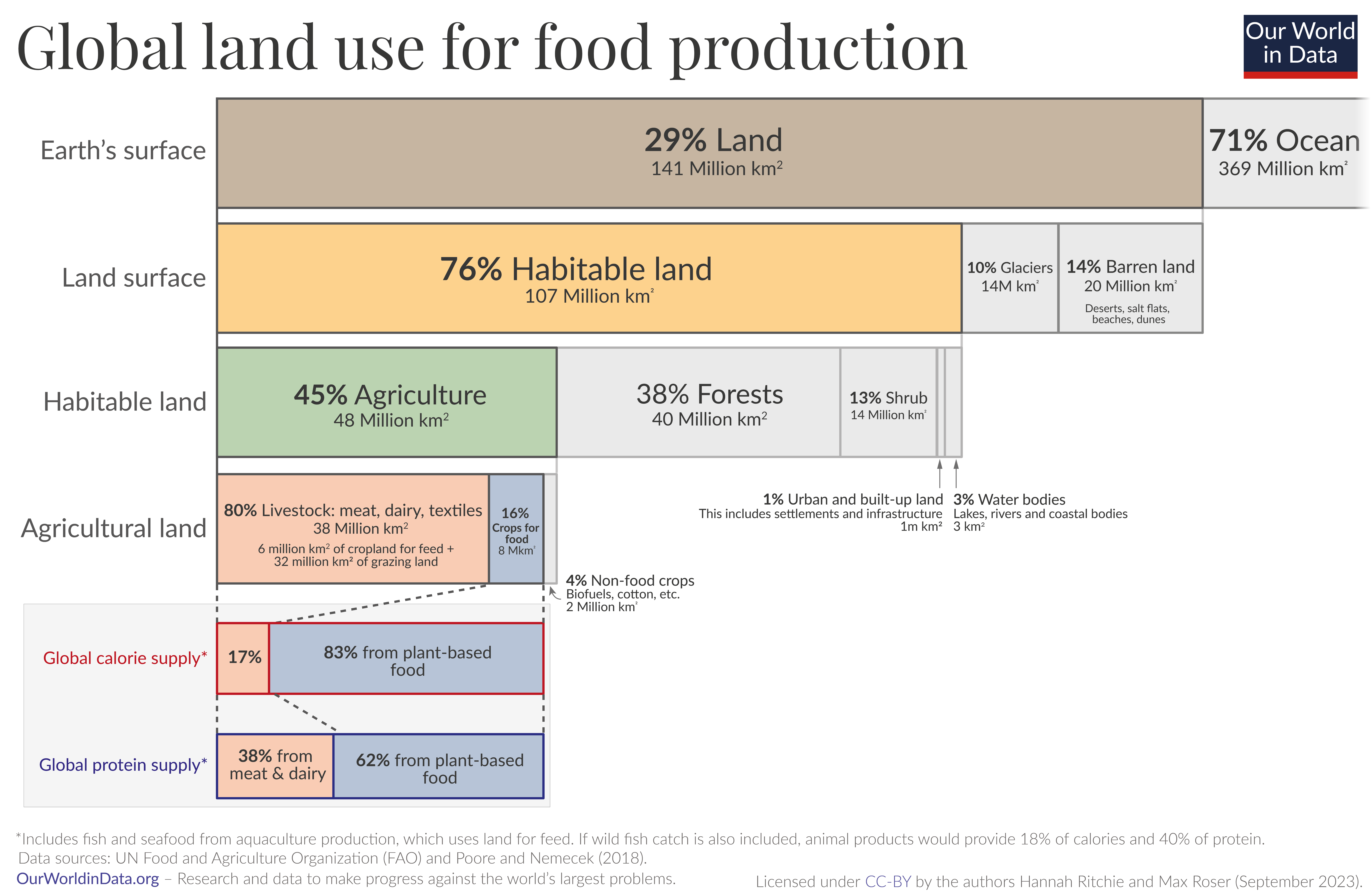
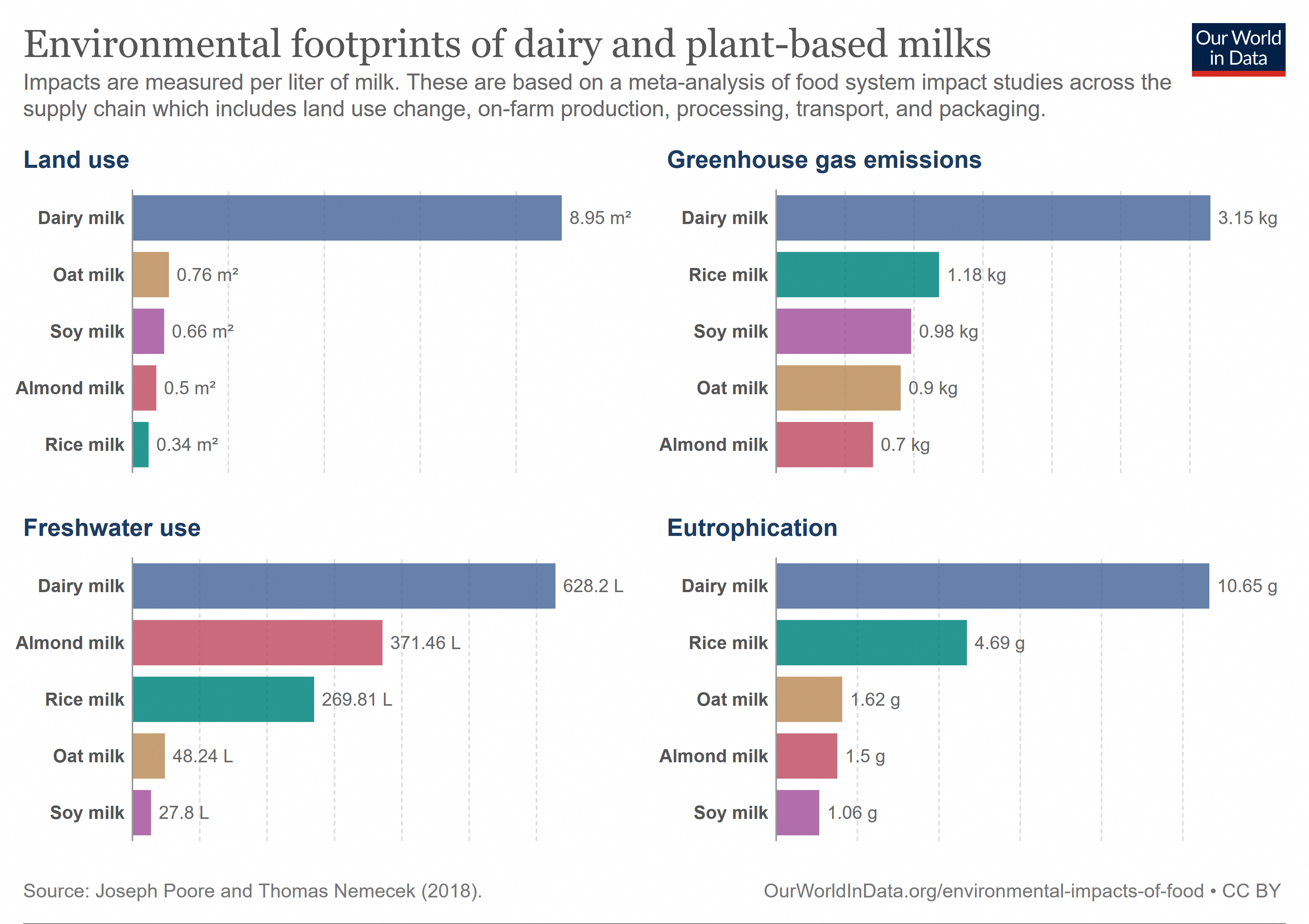
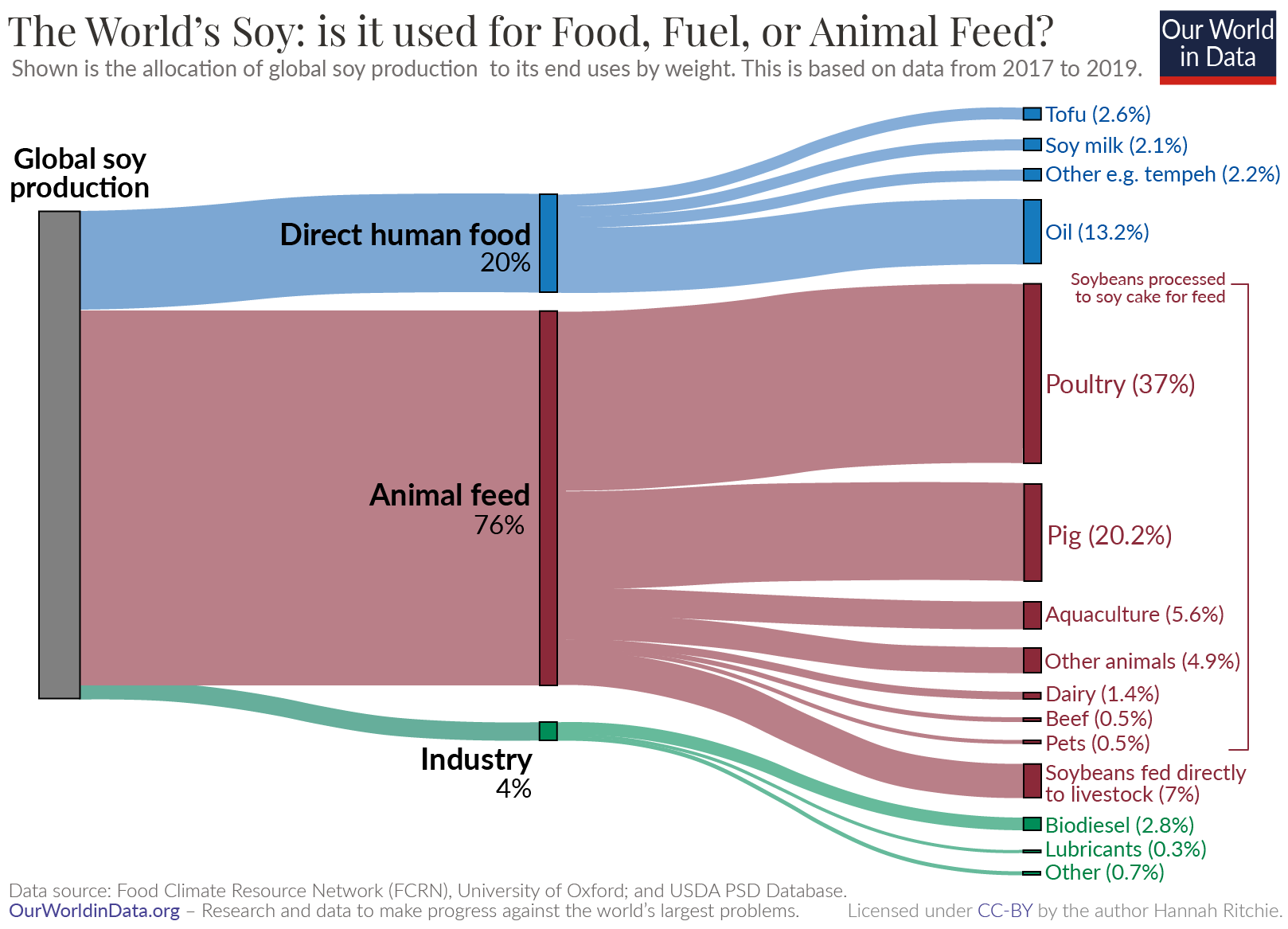
Health
- Processed meat and red meat cauce cancer. [Source: World Health Organization]
- “This comprehensive meta-analysis reports a significant protective effect of a vegetarian diet versus the incidence and/or mortality from ischemic heart disease (-25%) and incidence from total cancer (-8%). Vegan diet conferred a significant reduced risk (-15%) of incidence from total cancer.” Pubmed:26853923
- “The World Health Organization has classified processed meats including ham, bacon, salami and frankfurts as a Group 1 carcinogen (known to cause cancer) which means that there’s strong evidence that processed meats cause cancer. Eating processed meat increases your risk of bowel and stomach cancer.” Source
- “The Academy of Nutrition and Dietetics and Dietitians of Canada consider well-planned vegetarian and vegan diets “appropriate for individuals during all stages of the lifecycle, including pregnancy, lactation, infancy, childhood, and adolescence, and for athletes”.” Source
- Check this playlist to learn how bad eggs are, especially this video about the relationship between the egg industry and the US government.
Findings: In this cohort study of 221,054 adults from 3 large cohorts, higher butter intake was associated with increased total and cancer mortality, while higher intake of plant-based oils was associated with lower total, cancer, and cardiovascular disease mortality.
Meaning: Substituting butter with plant-based oils, particularly olive, soybean, and canola oils, may confer substantial benefits for preventing premature deaths.
Conclusions and Relevance: In this cohort study, higher intake of butter was associated with increased mortality, while higher plant-based oils intake was associated with lower mortality. Substituting butter with plant-based oils may confer substantial benefits for preventing premature deaths. Source
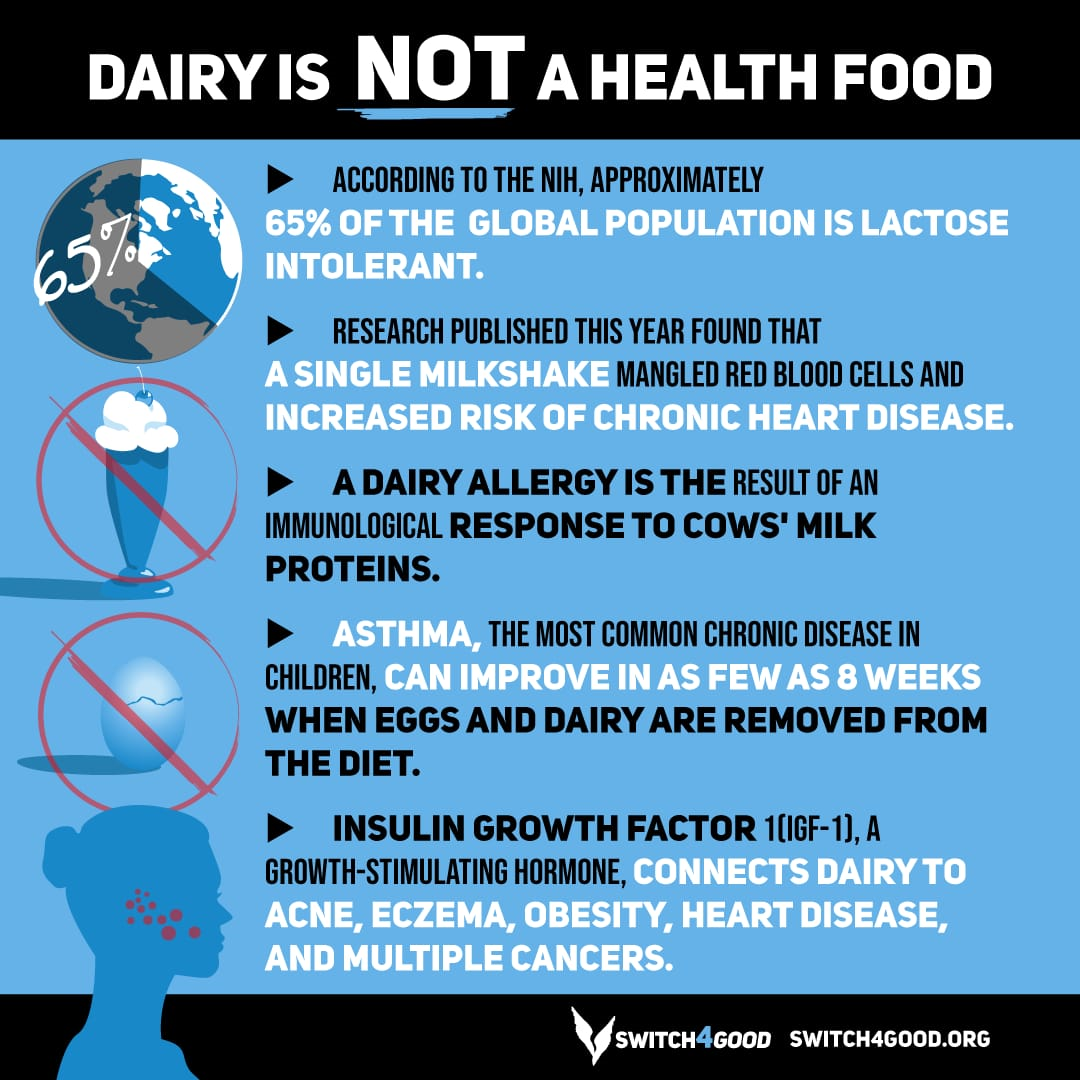
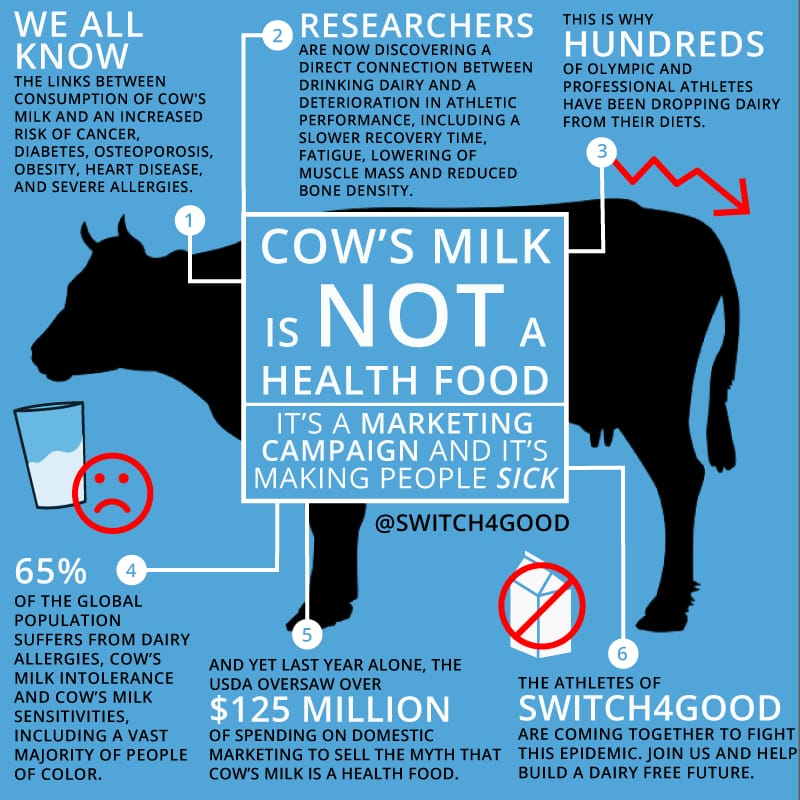
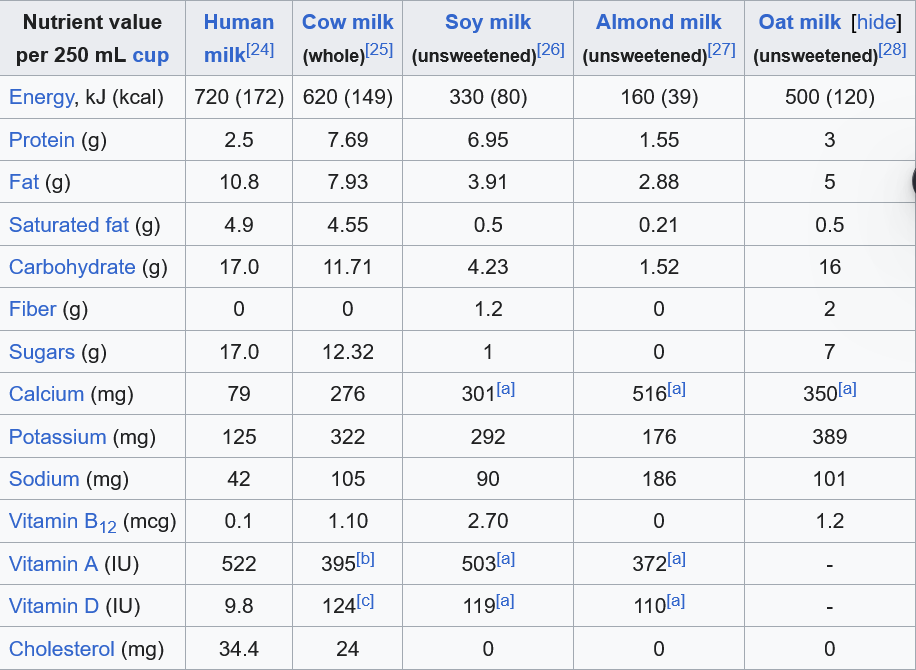
World hunger
“One in nine people in the world today are undernourished, yet we feed around a third of our global crop production to animals. If we cut out the middleman and ate the crops ourselves, instead of feeding them to animals, we could feed an additional four billion people – more than enough for everyone, for many years to come! We all know how wasteful old gas-guzzling cars are – how long before livestock farming is viewed in the same way: As a shameful, inefficient waste of resources.” Source
There are many Woke Human Rights Performative Pretenders whose excuse for supporting the moral abomination that is Animal Agriculture is that they “care” about human rights and the rights of poor people in Africa and these poor people cannot go vegan because veganism is expensive and because of that even these first worlders will not go vegan. That is very stupid because in these poor countries, people eat plant-based foods 99% of the time not because they care about animals but because Animal Agriculture is inefficient and expensive. If these Woke Human Rights Pretenders really care about Human Rights, then every day, more than a billion people go to bed hungry, and that is the biggest issue for Human Rights. But we are already producing food that can feed not only these billion but even 4 more billion humans. Even if they don’t care about Animal Rights or Climate Change, just caring about Human Rights is enough reason to Abolish Animal Agriculture.
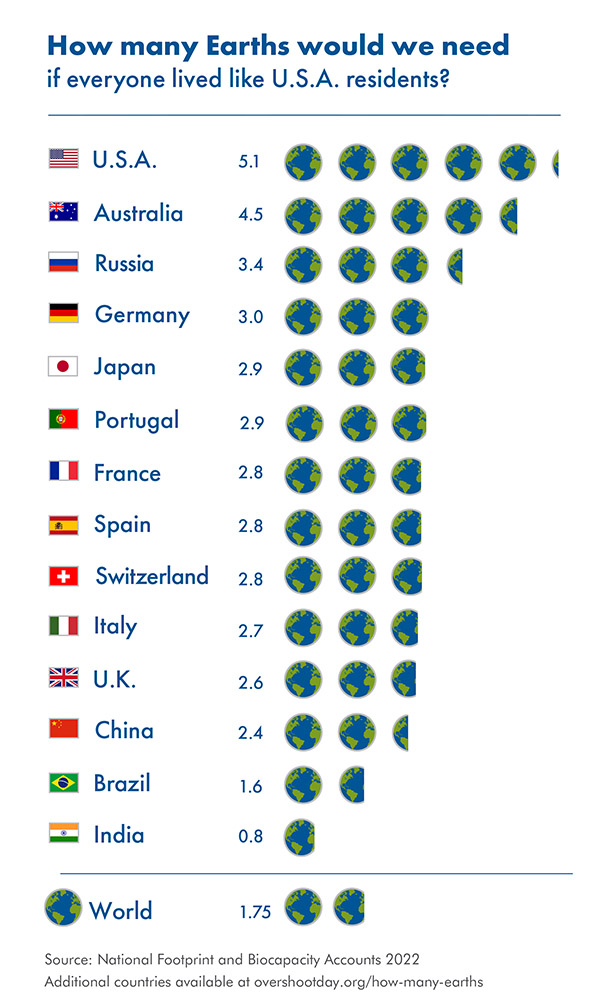
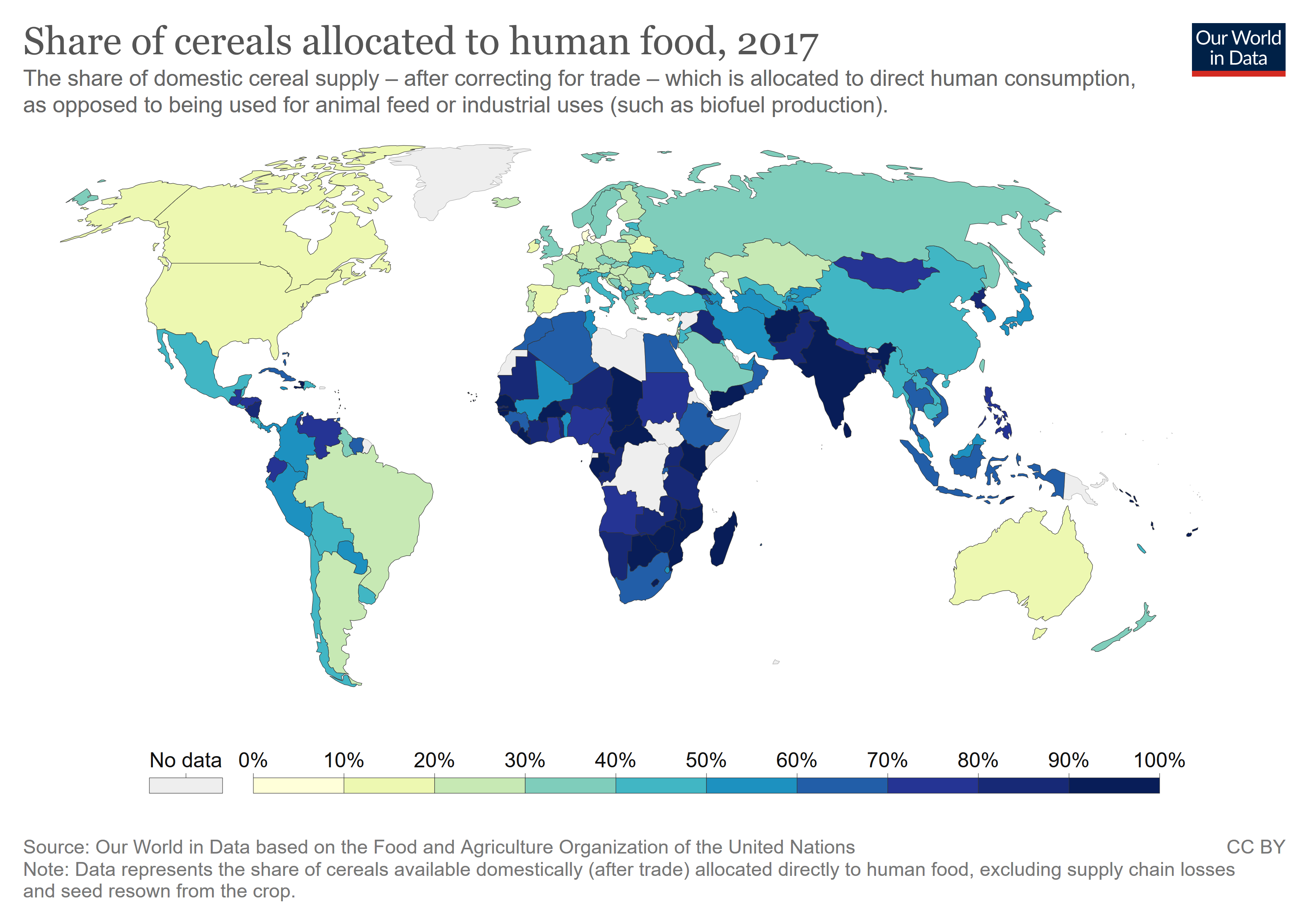
“Poor countries sell their grain to the West for hard currency while their own children starve in their arms. And the West feeds it to livestock. . . So we can eat a steak? I bet I am not the only one in the room who sees this as a crime?”
“Every morsel of meat we eat is slapping the tear-stained face of a starving child. When I look into her eyes, do I remain silent?”
“If everyone ate a Western diet, we would need two Planet Earths to feed them. We only have one. And she is dying.”
― Philip Wollen(philanthropist, environmentalist and animal rights activist)
“A global transition to a cruelty-free vegan diet won’t just help non-human animals. The transition will also help malnourished humans who could benefit from the grain currently fed to factory-farmed animals. For factory-farming is not just cruel; it’s energy-inefficient. Let’s take just one example. Over the past few decades, millions of Ethiopians have died of “food shortages” while Ethiopia grew grain to sell to the West to feed cattle. Western meat-eating habits prop up the price of grain so that poor people in the developing world can’t afford to buy it. In consequence, they starve by the millions. In my work, I explore futuristic, hi-tech solutions to the problem of suffering. But anybody who seriously wants to reduce human and non-human suffering alike should adopt a cruelty-free vegan lifestyle today.”
― David Pearce(transhumanist and philosopher and founder of Abolitionism (suffering))
Holocene extinction
- “Since 1970, the collective weight of free-living animals has declined 82%. Instead, a small number of farmed animals (mainly cows and pigs) dominate the global biomass. They account for 60% of mammal species by mass, 36% goes to humans, and just 4% are free-living animals. Animal agriculture is considered one of the prime factors contributing to the current biodiversity loss crisis.” Sources: 1, 2
Zoonotic diseases and pandemics
- “An estimated 60% of known infectious diseases and up to 75% of new or emerging infectious diseases are zoonotic in origin (1,2). Globally, infectious diseases account for 15.8% of all deaths and 43.7% of deaths in low-resource countries (3,4). It is estimated that zoonoses are responsible for 2.5 billion cases of human illness and 2.7 million human deaths worldwide each year (5)”. Source: doi:10.3201/eid2313.170418
- “Infectious diseases originating from animals (zoonotic diseases) have emerged following deforestation from agriculture. Agriculture can reduce its land use through intensification, i.e., improving resource use efficiency. However, intensive management often confines animals and their wastes, which also fosters disease emergence. Therefore, rising demand for animal-sourced foods creates a “trap” of zoonotic disease risks: extensive land use on one hand or intensive animal management on the other. Not all intensification poses disease risks; some methods avoid confinement and improve animal health. However, these “win-win” improvements alone cannot satisfy rising meat demand, particularly for chicken and pork. Intensive poultry and pig production entails greater antibiotic use, confinement, and animal populations than beef production. Shifting from beef to chicken consumption mitigates climate emissions, but this common strategy neglects zoonotic disease risks. Preventing zoonotic diseases requires international coordination to reduce the high demand for animal-sourced foods, improve forest conservation governance, and selectively intensify the lowest-producing ruminant animal systems without confinement.” doi:10.1126/sciadv.add6681
Antibiotic resistance
“Worldwide an estimated 73% of antimicrobials (mainly antibiotics) are consumed by farm animals. As resistance to antibiotics becomes more common there is greater need for alternative treatments. Calls for new antibiotic therapies have been issued, but new drug development is becoming rarer.
The burden of AMR is immense, with nearly 5 million annual deaths associated with resistant infections. Infections from AMR microbes are more challenging to treat and often require costly alternative therapies that may have more severe side effects. Preventive measures, such as using narrow-spectrum antibiotics and improving hygiene practices, aim to reduce the spread of resistance. The WHO and other international bodies warn that AMR could lead to up to 10 million deaths annually by 2050 unless actions are taken.” [Sources: Antimicrobial resistance and Antibiotic use in livestock]

Childhood indoctrination (brainwashing)
- It is morally unjustifiable to brainwash children. Children are young and naive, and it’s easy to brainwash them into any ideology. The most famous case for this is religions. See this blog post for the case of religions. In this aspect, carnism is very similar to religions and employs the same tactics.
“Results of the edibility sorting task show that many children identify animals like cows, pigs, and chickens as unacceptable to eat. In fact, the majority of young children ages four to five thought that cows and pigs were not potential food sources (84% and 79%, respectively). These mistakes were less common in older children. Interestingly, fish were the one animal who most kids (67%) correctly identified as a food source, perhaps because fish are the least similar to humans. This finding suggests that younger children’s errors might reflect a bias against viewing animals as food sources, especially animals who are most similar to humans (i.e., mammals).
In both the food origin sorting task and the edibility sorting task, children made more mistakes with animal-based foods. Within animal-based foods, children made more mistakes with sorting the origin and edibility of meat compared to milk and eggs. The authors suggest that many children may be unaware of the fact that meat comes from slaughtered animals. This ignorance may be due to a combination of parents intentionally withholding this information and modern industrialization distancing urban residents from the food production process.” Source
Sexism
Apart from the rampant speciesism, animal agriculture is also an institutionalized form of sexism where different sexes are tortured differently. The vast majority of feminists are massive hypocrites for consuming eggs & dairy, which are products of abuse of the female reproductive system.
- Both the dairy industry and the egg industry sell products that are the direct result of the abuse of female reproductive organs. The dairy industry keeps forcefully (artificially) impregnating the cows. The egg industry artificially makes chickens lay eggs daily instead of the natural monthly.
- This sexism is not exclusive to female sentient beings. Male chicks are grinded alive in the egg industry. Male calves are killed for veal as they cannot be forcefully (artificially) impregnated.
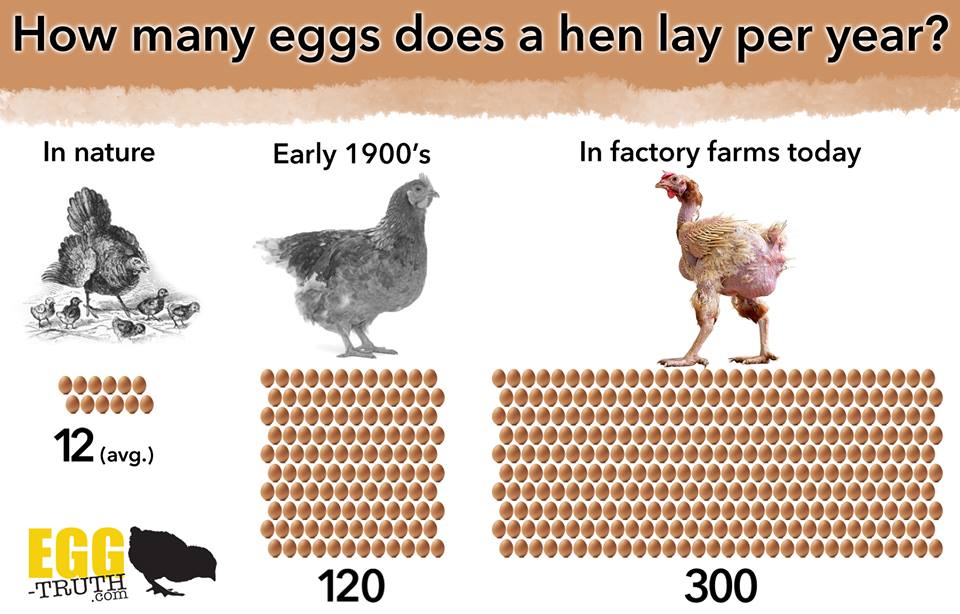
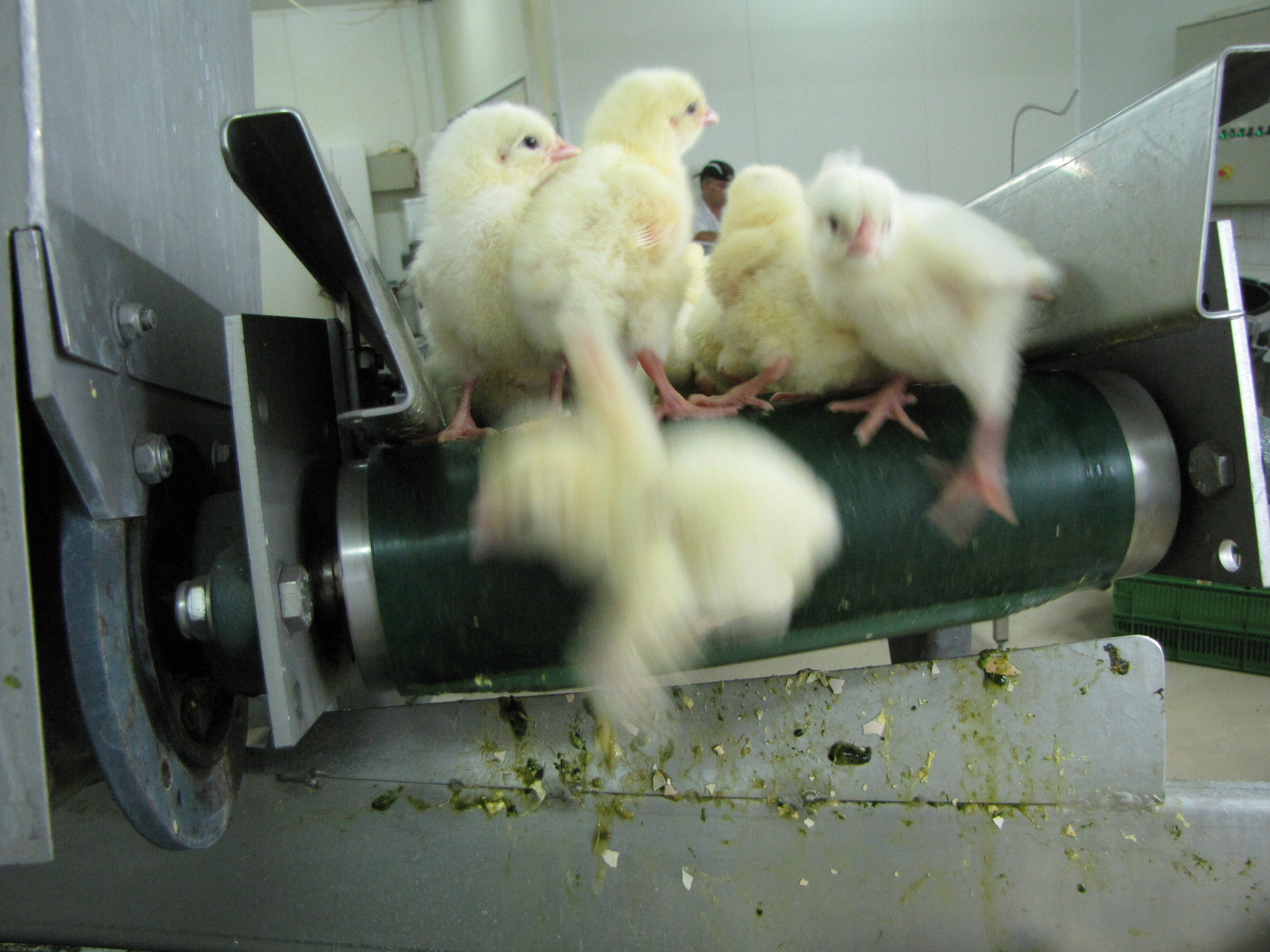
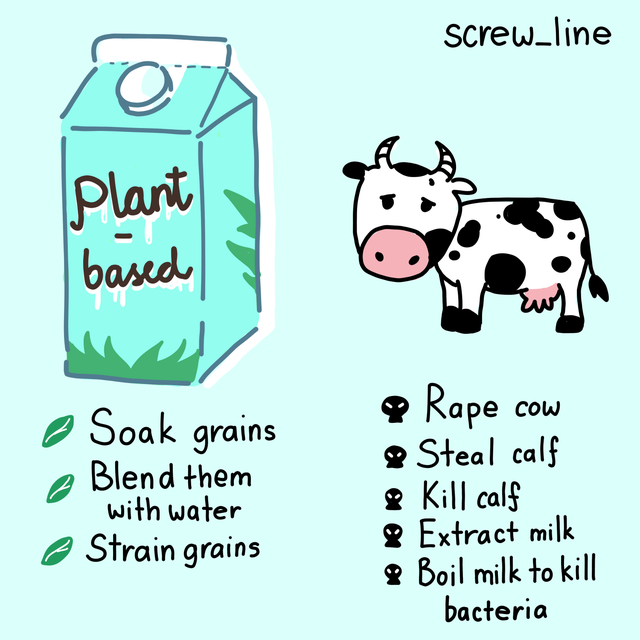

“I coined the term feminized protein for eggs and dairy products: plant protein produced through the abuse of the reproductive cycle of female animals. Feminized protein is taken from living female animals, whose reproductive capacity is manipulated for human needs. The unique situation of domesticated female animals required its own term: a sexual slavery with chickens in battery cages and dairy cows hooked up to milking machines. … The radical truth is that people can be perfectly happy as vegans, but the dominant culture can’t or won’t acknowledge this. …”
― Carol J. Adams(feminist and animal rights advocate)
Microplastics
- Processed corpses of land animals and marine animals have a much higher number of microplastics in them than processed plant foods like tofu. See the below image. Source

Hormones
This is not an important reason. I am mentioning it here because a lot of insecure conservative men believe in the conspiracy that vegans have less testosterone and are not manly. The dairy propaganda is that soy products contain estrogen. But soybeans only contain phytoestrogen that cannot affect mammals. But dairy products contain literal mammalian estrogen that is making men less “manly” and women more “womanly”. Women are hitting puberty at earlier ages. So, both sexes and all genders are negatively affected by the dairy industry.
Conclusions: The present data on men and children indicate that estrogens in milk were absorbed, and gonadotropin secretion was suppressed, followed by a decrease in testosterone secretion. Sexual maturation of prepubertal children could be affected by the ordinary intake of cow milk. Source: pubmed 19496976
Conclusions: Regardless of the statistical model, no significant effects of soy protein or isoflavone intake on any of the outcomes measured were found. Sub-analysis of the data according to isoflavone dose and study duration also showed no effect. This updated and expanded meta-analysis indicates that regardless of dose and study duration, neither soy protein nor isoflavone exposure affects TT, FT, E2 or E1 levels in men. Source: pubmed 33383165
Results: Obtained results showed that total sperm count (224.7 [117-369] vs. 119.7 [64.8-442.8]; P = 0.011) and the percentage of rapid progressively motile sperm were significantly higher in the vegan group compared with the non-vegan group (1 [0-7] vs. 17.5 [15-30]; P < 0.0001). Furthermore, the oxidation-reduction potential (0.4 [0.3-0.9] vs. 1.5 [0.6-2.8]; P < 0.0001) and the proportion of spermatozoon with DNA damage (14.7 [7-33.5] vs. 8.2 [3-19.5]; P = 0.05) were significantly higher in the non-vegan group in comparison to the vegan group.
Conclusions: Results obtained in this study provide additional evidence about the favourable effect of a plant-based diet on sperm parameters. Source: pubmed 35197681Vegans had higher testosterone levels than vegetarians and meat-eaters, but this was offset by higher sex hormone binding globulin, and there were no differences between diet groups in free testosterone, androstanediol glucuronide or luteinizing hormone. Source: pubmed 10883675
For women, the consumption of dairy products causes early puberty. The first menstrual bleeding happens at an earlier age than what is natural due to the intake of mammalian estrogen.
- Conclusions: There is some evidence that greater milk intake is associated with an increased risk of early menarche, or a lower age at menarche. Source:PMC3038976
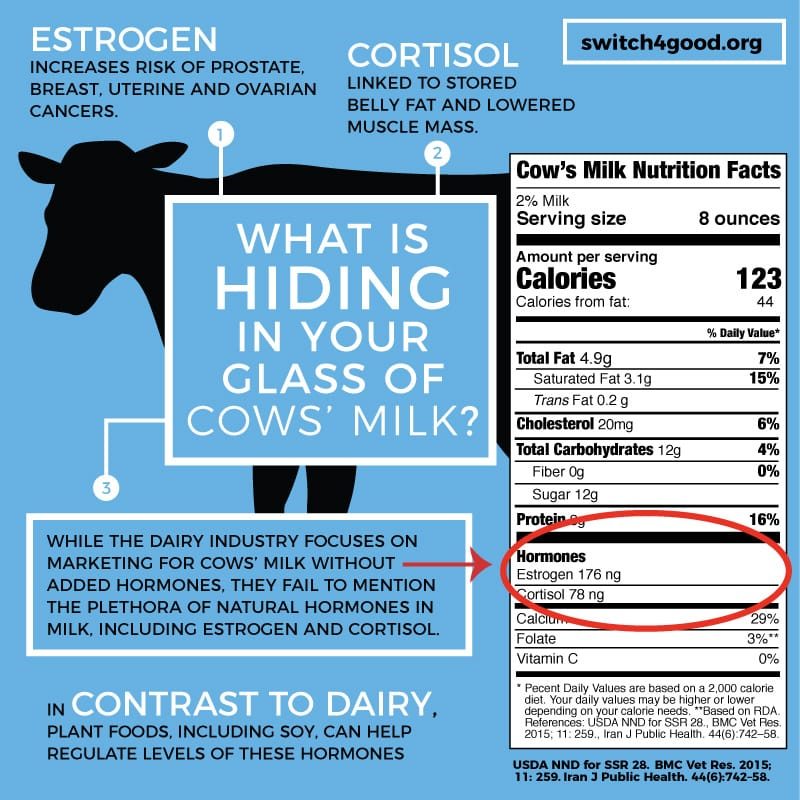

Resources
- 3minutes.wtf
- 3movies.org
- 3movies.wtf
- Vegan Cheat Sheet
- animal-ethics.org
- Vegan Starter Kit
- Abolitionist Approach
- HowDoIGoVegan.com
- egg-truth.com
Nutrition
- Nutritionfacts.org
- Mic the Vegan
- Viva Longevity
- Veganhealth.org (somewhat pessimistic view but still as evidence packed as the above 2 links)
- Veganfitness.com
- Vegan society
Arguments
- Carnism debunked
- veganspeak.org
- Arguments for veganism by philosophical vegan
- vegansidekick
- vomad.life
- ADAPTT
- Dontwatch.org
- www.collectivefashionjustice.org
Youtubers:
1) Andrew Bernard
Example video:
9) Rachel Ama
12) Vegan Richa
14) Sauce Stache
15) Lauren Toyota
16) Edgy Veg
17) Julia Ayers
Videos
Indian Documentaries
Arvind Animal Activist has good videos. The below are good documentaries.
-
This is an English documentary. -
This is a Hindi documentary, but on their channel, you can also find many other versions in local languages, such as in my mother tongue, Telugu.
Other
Memes















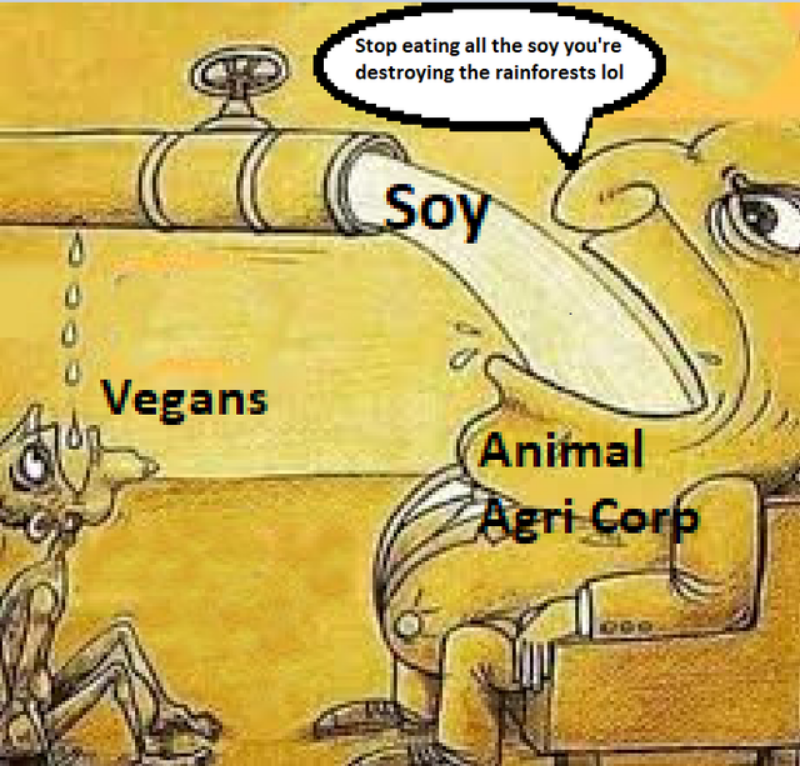


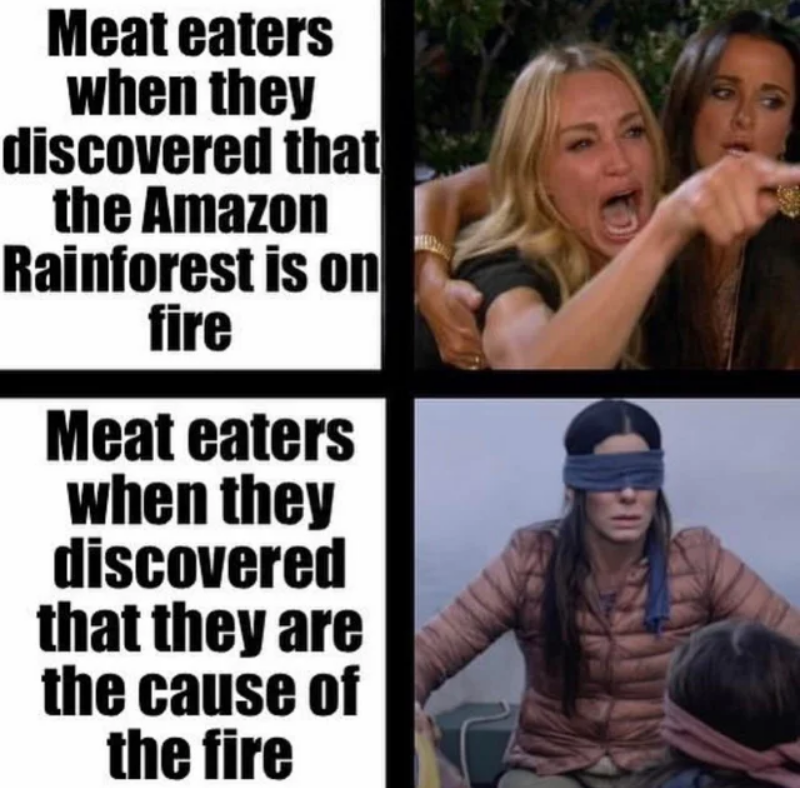

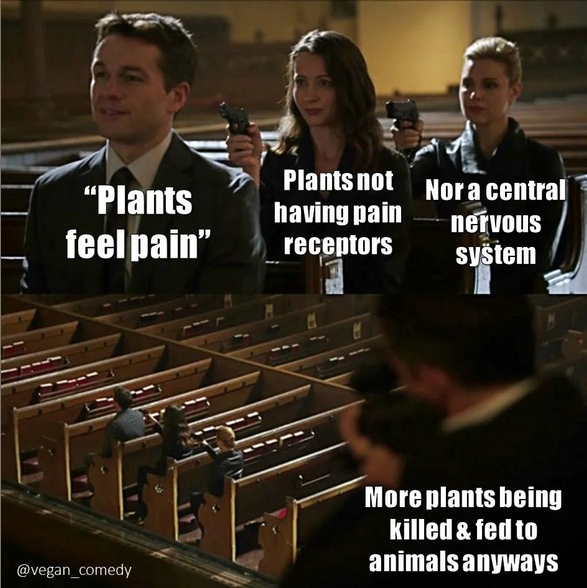


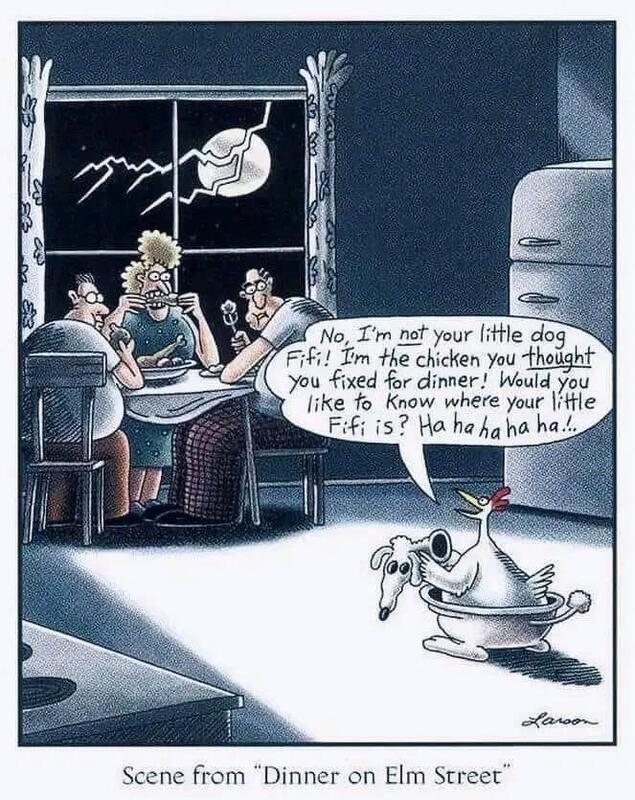



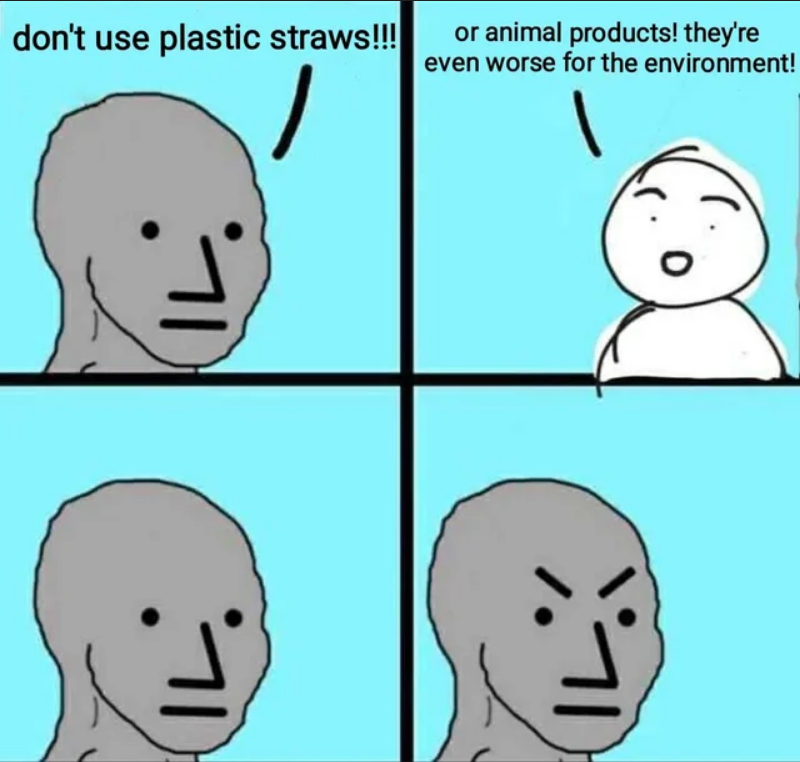

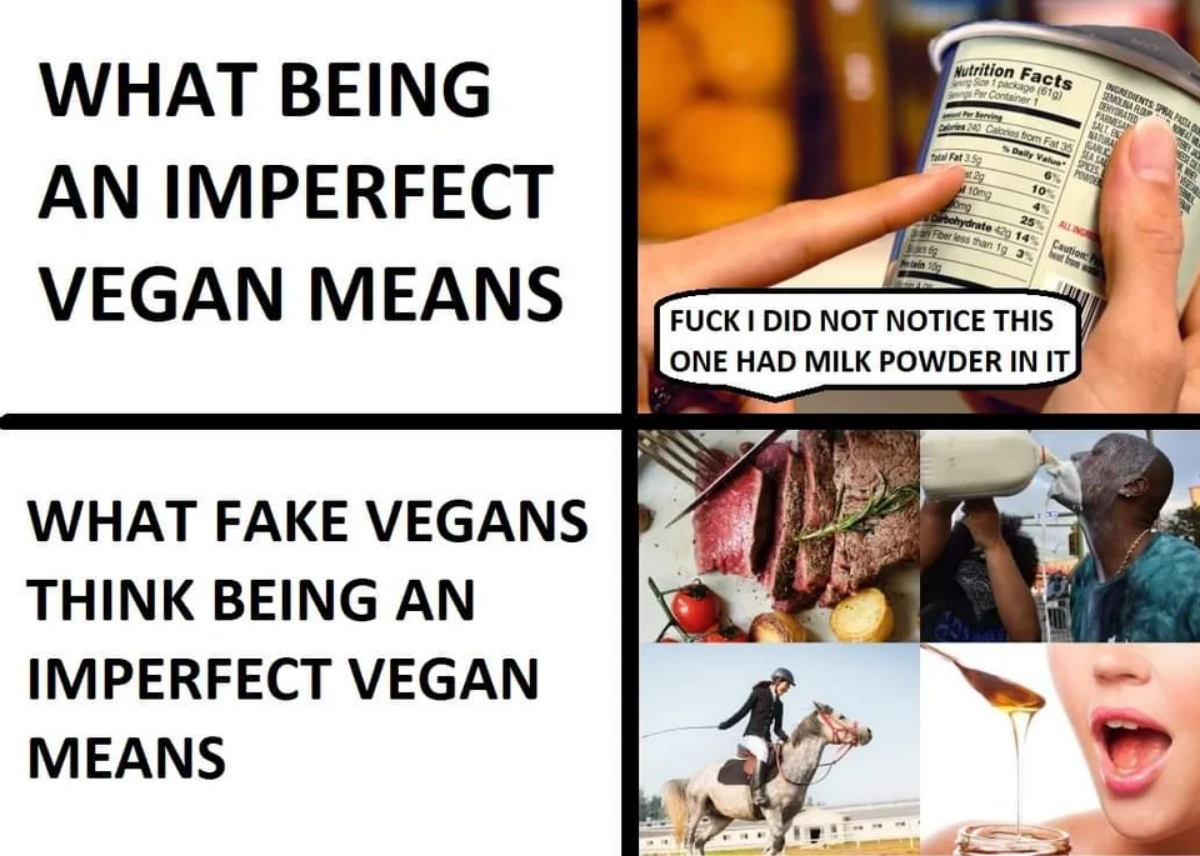

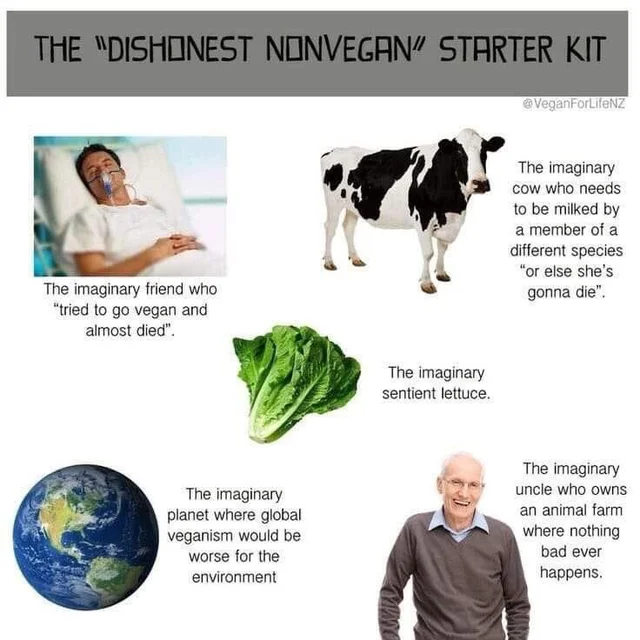

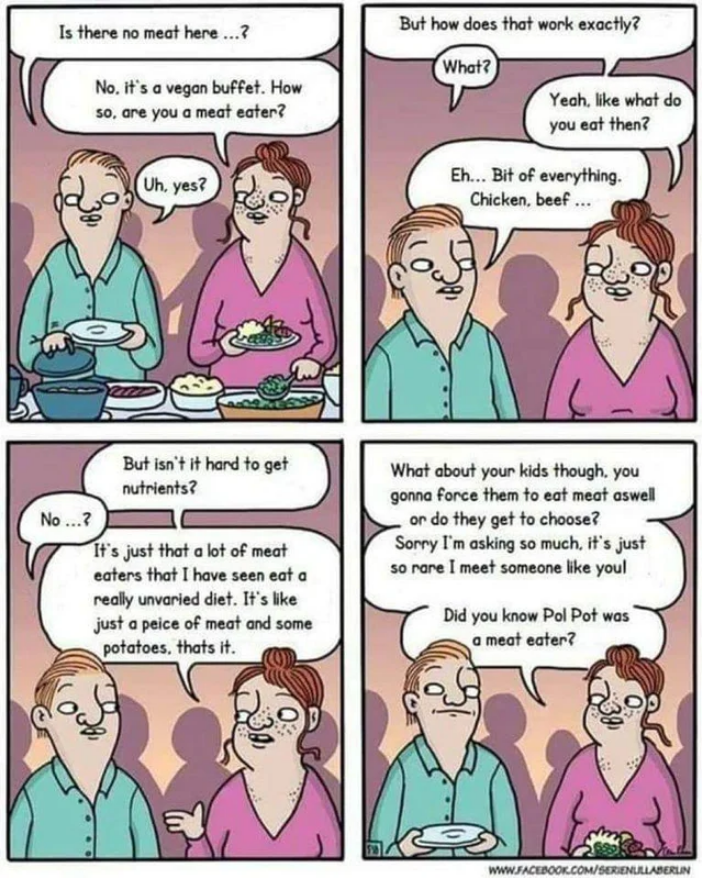



















My story
When I was a child, I was a vegetarian (because of religious reasons, meat was not eaten in my home; actually, Hinduism allows our family to eat meat as we are not high caste, but my paternal grandparents are in a new age religious cult that is similar but different from Hinduism called Brahma Kumaris due to which my paternal grandparents banned meat in our joint family) and I used to think that there is nothing morally wrong with drinking milk since we are not killing the cows or buffaloes. In the middle of my 9th class my biology teacher said that eating meat is necessary to be healthy and he gave several reasons why it is beneficial to health. Because of that I became a meat eater (I was living in hostel not home and also was an atheist) and ate chicken in 2 meals for the next 4 years. Now I know that he is wrong and it is actually healthier to be a vegan. But looking back even if it was true that carnism is slightly more healthier than veganism it is not morally OK to eat meat.
Roughly speaking, $\frac{1}{4}$ chicken is needed per 1 meal per 1 person at my high school hostel. Each week I ate 2 times chicken during the 4 years in hostel. So the total number of chickens that are killed because of me is $4\times 52 \times 2 \times \frac{1}{4}=104 \approx 100$ chickens. Let us assume that an average human life is roughly 100 times more worthy than a chickens life. In that case what I did is as bad as murdering a single human being. Of course these are not exact calculations and if you say an average human is roughly 10 times more worthy than a chickens life then that would mean what I did is as bad as murdering 10 human beings. These are called Fermi problems which only give an estimate of the order of magnitude. Also I can decrease the number of chickens I killed by like 15% percent because I only ate them when I was in hostel and when I went to home for vacation I didn’t eat meat.
Edit: The above para was written back when I was a welfarist vegan. This kind of comparison doesn’t go well with abolitionist veganism.
In early 2020, I found out (for the 1st time) what actually happens in the dairy industry by watching this and some other videos posted by Arvind Animal Activist. But I was not sure if it was healthy to go vegan. But after watching many videos of Erin Janus (her DAIRY IS SCARY! video was the final video that made me realise that I can no longer support the dairy industry) and Earthling Ed I decided to go vegan. But then covid lockdown happened. After covid started I became a lacto-vegetarian (just like I was in childhood.) but not a vegan because of some stupid reasons (like my parents will be angry at me and won’t allow etc.) which are definitely not good enough excuses to support the cruel dairy industry for another 2 years. I continued to drink milk for 2 years in home despite guilt. On the night of 31 Dec 2021, I boarded a train to Mumbai from my hometown because, after almost 2 years, the COVID-19 lockdown was over, and my university was again open offline. From that day, I became a vegan. I only informed my family more than a year after I became vegan, and as I expected, I did receive negative responses, but later on, they told me to do whatever I wanted. If COVID (it happened due to animal agriculture) never happened, I would have become a vegan 2 years earlier.
Until the middle of May 2022 I was a welfarist vegan or utilitarian vegan. Then I found Gary L. Francione’s website abolitionistapproach.com (especially his Six Principles) which converted me into an abolishanist vegan.
If I want to live as a responsible man, I must do something in life to repent for participating economically for 20 years in the commodification of sentient animals.
A roadmap to abolition
- This section is about what should be done if ASI didn’t take over. If ASI takes over in the future, then we don’t need to do anything, and if we just sit back and watch, it will abolish animal agriculture because ASI will not have anthropocentric speciesist bias like humans. Some people are worried that when ASI takesover, it will see animal agriculture and it might think humans have done far too cruel things to trillions of animals every year and might think humans are an irredeemable species and persecute us. But I am 99% sure that ASI will be benevolent towards humans. I imagine a wise ASI will be very forgiving; it won’t care about past atrocities and will focus on stopping future atrocities. I dislike retributive justice, and I hope ASI also thinks the same way and I think ASI will easily forgive even the gravest mistakes.
Let’s say you become a leader/dictator of a country and also assume that you care about the animals. How can you achieve abolition? Let’s not consider Abolitionism (suffering) as it is much harder to achieve. We are considering the relatively simpler case of Abolitionism (commodity status). Can you just add Gary Francione’s principles to the constitution and declare success? It is not quite that simple. It would have been that simple if “man is a rational animal” as Aristotle believed. Even if you are a dictator who has created a cult of personality like the Kim family, people won’t accept if you suddenly make this a rule without any prior steps. Many people will be severely offended by the mere suggestion that all sentient animals deserve not to be treated as property; that’s how much normalized the commodification of animals has become in the minds of humans. Quite possibly, there will be a large scale civil war even if you have a godlike cult of personality because their cognitive dissonance will be more powerful than your cult. In fact, the American Civil War happened for the same reason; the only difference is the commodification based on racism instead of speciesism. George Washington understood that slavery was immoral towards the end of his life and freed all enslaved people that he owned, but he still didn’t dare to publicly fight against slavery because the majority of the people supported it, and even his cult following was insignificant before slavery. I will try to explain several steps that can be taken to make sure a war like the American Civil War never happens.
Powerful countries: Even if you succeed in passing something like the Emancipation Proclamation, if your country is small like Tuvalu, then it will not have any large scale impact. If your country is powerful, it can use its diplomatic power to pressure other countries to follow. So, ideally, you should try this in powerful countries. Currently, there are only 2 such countries: the USA and China. The perfect role to do this is China’s Paramount Leader because it has more power than POTUS. If you are a Chinese citizen, you can consider this career path for the sake of animals. Even though the USA is the most powerful country its leadership has limited power. By 2030, India’s GDP will surpass Germany and become the 3rd biggest. But it will still be much lower than the no. 1 USA and no. 2 China. But by 2075, India is estimated to be the 2nd largest economy, surpassing the USA. In 2075, the ranks will be 1) China, 2) India, 3) USA. So currently, there are only 2 powerful countries, but in the future, there will be three such countries in a tripolar world. It would be even better if we succeeded in creating a federal world government. The biggest positive is that there will no longer be a need for a military (until we discover aliens). So, all the money saved from abolishing the military can be used for useful purposes. In a world government, we can enforce the rule simultaneously on the entire world instead of slowly converting countries.
So. now the steps you need to take:
1) Become the leader of a powerful country: You should become the leader by talking only about human problems like economic progress, etc. Because, after all, only humans can vote. Even abolitionists only want to give animals only one right: the right not to be treated as property. Not voting rights etc. You shouldn’t lie, but merely not talking about animals during your election campaign is not wrong. Among the 2 current powerful countries (USA, China) and 1 future candidate India, if you are a natural-born citizen of any of these 3, you should try to become the leader of that country.
- If you aren’t a citizen of any of these 3, then it’s more complicated. The USA only allows people who are natural-born citizens for eligibility to be their President. But if you have enough lobbying power, you can change that with an amendment. The Paramount Leader is an informal term with no formal criteria, so it is possible even if you are not a Chinese citizen. India does legally allow naturalized citizens to become the PM, and Sonia Gandhi (1, 2) almost became the PM despite being an ethnic Italian. If you think it is too much effort, maybe you should just select a local person from one of these 3 countries as your protégé and do everything you can to make him the leader.
2) Education:
- First, you should pass a law that makes it mandatory for all high school students to have a chapter on animal agriculture in every year of high school (ages 12 to 18). Children need to know about the utilitarian approach against suffering and the deontological approach against commodity status. Educating children is the main way we can make society progress. Until I watched vegan activism videos, I was not aware that cows only give milk when they are pregnant; I already completed a quantum mechanics course and special relativity by then but somehow never knew this basic biological fact. Animal agriculture companies have made sure that their propaganda and lies are effective, and people believe it is all fun for the animals inside their factories.
- You should also make it mandatory that at every shop/restaurant that has animal ingredients, they should put banners explaining that animal agriculture is very cruel and harmful to health and also the other reasons that I mentioned in this page. Also, just like health warnings on cigarettes, all animal products must come in packages that say what you are doing is very cruel to animals and harmful to your own health and also to the environment.
3) Increase Taxes on Animal Agriculture and Inrease availability of alternatives: Currently, most countries subsidize animal agriculture and pay these companies. The US pays billions of dollars to the meat and dairy industry every year. India pays billions of dollars (tens of thousands of crores) to the dairy industry to subsidize it. The 3rd thing you must do is to remove these subsidies from animal agriculture and give them to companies like plant milk and mock meat companies.
- You should also increase the tax on animal agriculture such that their price is double that of similar vegan alternatives.
- You should mandate that every shop/restaurant MUST have vegan alternatives available for everything they have.
4) Majority: You should wait till the majority (>50%) of the country become vegans and the majorty support the abolitionist cause. The more resources put into education, the faster we will reach the majority. Also, the more taxes you raise on Animal Agriculture, the fewer people will buy it.
5) Emancipation Proclamation- Abolish the commodity status of sentient animnals: Put a nationwide band on animal agriculture companies. People should be informed about this ban a few months before it is enacted so that they will be ready for it. By this time, even the minority that still consumes animal products will probably do it less frequently. Even if we ban large companies, people can just raise chickens in their homes and kill them in secrecy and still consider those animals as their property. If such a case is found, then the government should arrest them for a week.
Doing these 5 things will be very hard. It might be slightly easier for India than the other 2 countries because Indian religions do talk a lot about animal suffering. Though Indian religions talk negatively about meat, they do talk very positively about dairy products. Religions are bad, but you can certainly take advantage of these religious tendencies for the sake of animal rights. So, the biggest challenge for the most populated country will be to make them leave dairy and use plant milk instead. But over a timespan of 2 or 3 decades, I think it is feasible to achieve this even without being forced to become a dictator and instead by becoming just a democratic leader.
Read the following to know why I used the word “large” above.
“large N” negative utilitarianism limit: In the standard trolley problem I think rights theory is the correct theory and we should not take away the right to live of one person to save 5 persons. But if we change the number $5$ to $N\to \infty$ (some large number like billion or trillion) then I think it is ok to kill one person to save that many people. So, in this “large N” approximation, we should use utilitarianism instead of rights theory. But what is the exact critical value of $N$ at which this transition happens? I don’t know! So, I don’t actually assume the rights theory as a dogma. Rights are ontologically dubious entities. I beleive in rights theory except in extreme cases like $N\to \infty$ in this example. This kind of ethics is often called Threshold deontology or Combining negative utilitarianism with rights. Similar logic works for the famous counterexample to utlitarianism: “You have five patients who need organs. Two need one lung each, two need a kidney each, and the fifth needs a heart. If they do not get those organs today, they will all die; if you find organs for them today, you can transplant the organs and they will all live. There is a random person going on the road. Can you kidnap and sacrifice him for saving people?”. In this case 5 is not a big number so rights theory should be accepted and you should not sacrifice him. But if for every single cell in his body you can save a person (average human has 30 trillion cells), then you should follow utilitarinism and sacrifice a single human to save 30 trillion humans even if it means you will violate that persons right to live.
When I say I am an abolitionist vegan, you have to understand that it is only a practical approximation of my position. Abolitionist veganism assumes the rights theory, but I only approximately believe in rights theory. In most practical cases, my position coincides with abolitionist veganism but unlike Gary Francione I don’t believe in rights exactly. But in complicated situations I can’t give proper answers. The trolley problem is actually a simple looking problem as we only have two options (we can either pull the lever or do nothing) and one parameter (ratio of the number of people on one track to the other). We can make more complex problems where we have many options that depend on many variables. The objective moral theory (lets call it M(oral)-theory or M-theory in analogy with the physics M-theory which also we know only in certian limits), that can answer every moral problem, is probably very complicated. We only know about it in certain limits (like when all parameters are in specific limits like large $N$ in the previous example).
If 100 animals were experimented with medicines and if it saves 100 million humans I think it is justifiable. But if 100 animals were experimented with medicines and it only saves 1 human then it is not justifiable.
The amount of suffering caused by vivisection is currently negligible compared to meat industry and dairy industry. We can think about this problem after those industries are abolished.
Also, check my blog post on my ethics. ↩




